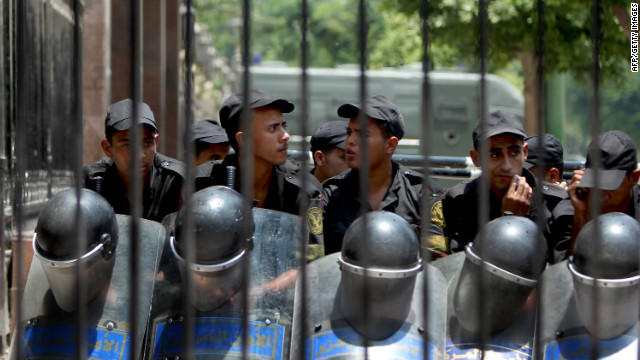
- Reports of his failing health add to the political and constitutional turmoil in the country
- Two presidential contenders both proclaim themselves winners in weekend election
- Military rulers plan to announce the results of the presidential runoff Thursday
Cairo (CNN) -- Conflicting reports swirled in Egypt on Wednesday about the health of former President Hosni Mubarak as a power struggle looms over his successor more than a year after he was ousted in a popular uprising.
MENA, a state news agency, reported he was clinically dead late Tuesday. The nation's military rulers quickly denied it.
"He is not clinically dead as reported, but his health is deteriorating and he is in critical condition," said Gen. Mamdouh Shahin, a member of the Supreme Council of the Armed Forces.
Another state-run media, Nile TV, issued a similar report Wednesday.
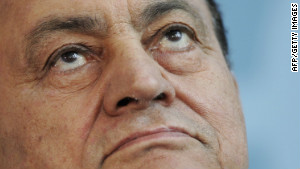 Hosni Mubarak's impact on Egypt
Hosni Mubarak's impact on Egypt 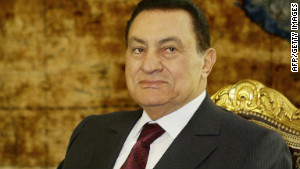 Who is Egypt's Mohamed Morsi?
Who is Egypt's Mohamed Morsi?  Paul: Al Qaeda stronger in Egypt
Paul: Al Qaeda stronger in Egypt 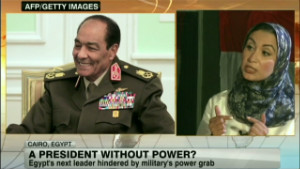 The legacy of the Egyptian revolution
The legacy of the Egyptian revolution Mubarak was moved to a military hospital in Cairo after suffering a stroke in prison and is on life support, Nile TV said. The hospital is guarded and is not letting anyone in, it reported.
Reports of his failing health have taken a back seat to the political and constitutional turmoil in the country, which has sent thousands of protesters spilling onto the streets.
Military rulers dissolved parliament last week, extending their power and sparking accusations of a "coup" by demonstrators protesting the military council governing the nation.
In addition, two presidential contenders have both proclaimed themselves winners in the race to succeed Mubarak 16 months after an anti-regime uprising ended his three-decade rule.
In a statement on their website, the military rulers said they will announce the results of the presidential runoff Thursday.
Conflicting election claims sparked protests among supporters of both candidates.
Thousands of Egyptians gathered in Cairo's Tahrir Square -- the birthplace of the anti-Mubarak uprising -- Tuesday night to protest what they call a coup by Egypt's military rulers and show their support for their preferred presidential candidates. Each side in the election accused the other of voting irregularities and called for an investigation.
A spokesman for Ahmed Shafik -- the last prime minister to serve under Mubarak -- said Tuesday that Shafik had won, Nile TV reported.
Mohamed Morsi, the Muslim Brotherhood candidate, claimed victory Monday and vowed to build an inclusive government.
"No one's rights will be left out of it, and no one will dominate over the other," he said.
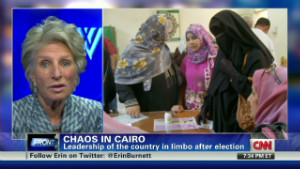 Egypt leadership in limbo
Egypt leadership in limbo 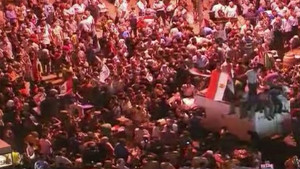 'Morsi win would be huge for Brotherhood'
'Morsi win would be huge for Brotherhood'  Who is the next president of Egypt?
Who is the next president of Egypt? 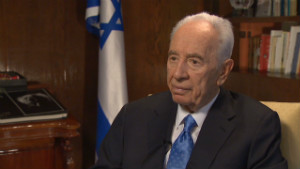 Peres: Muslim Brotherhood must have plan
Peres: Muslim Brotherhood must have plan The dueling announcements come amid questions over how much authority the president will have in the new Egypt. The Supreme Council of the Armed Forces, which has run Egypt since Mubarak's ouster, stripped the position of much of its power.
Under an interim constitutional declaration released Monday, the military council retains the power to make laws and budget decisions until a new constitution is written and a new parliament elected.
The declaration says Supreme Council members "shall decide all matters related to military affairs, including the appointment of its leaders."
The president has the power to declare war, it says, but only "after the approval" of the Supreme Council.
That move came days after Egypt's highest court dissolved the lower house of parliament and the military council announced it had full legislative authority.
The Muslim Brotherhood, the country's largest Islamist group, was the dominant party in the parliament.
The Carter Center, which monitors elections worldwide, issued preliminary findings about the runoff.
"The Center noted that the Egyptian people again have demonstrated their deep commitment to the electoral process. However, The Carter Center expressed grave concern about the broader political and constitutional context, which calls into question the meaning and purpose of the elections," the agency said in a statement Tuesday.
Former U.S. President Jimmy Carter, who founded the organization, said he is "deeply troubled by the undemocratic turn" in Egypt's transition.
"The dissolution of the democratically elected parliament and the return of elements of martial law generated uncertainty about the constitutional process before the election," he said. "The Supreme Council of the Armed Forces' new Constitutional Declaration, in which they carve out special privileges for the military and inject themselves into the constitution drafting process, violates their prior commitment to the Egyptian people to make a full transfer of power to an elected civilian government."
In Tahrir Square, news of Mubarak's health was put in the backburner.
"Down with the military," crowds chanted late Tuesday.
CNN's Ivan Watson, Salma Abdelaziz and Josh Levs contributed to this report.


